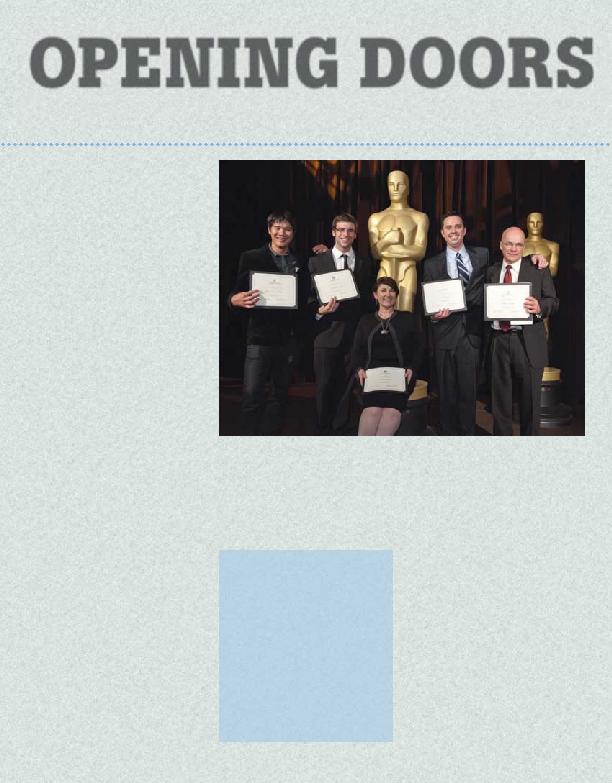
tion Picture Academy in 1985 about setting up
a program to help new writers, most screen-
writers were still chained to their typewriters
and personal computers were still in their in-
fancy. Though rumor has it that she made a
similar proposal to the Television Academy,
she opted to go with the Motion Picture Acad-
emy instead, and together they launched the
first competition in 1986, which was named
after her late husband, TV writer-producer Don
Nicholl (All in the Family, The Jeffersons).
to submit a variety of formats, including screen-
plays, teleplays, fiction or stage plays. In that first
year, there were 99 entries with three winners --
or "fellows" -- chosen. The original three in-
cluded indie filmmaker Allison Anders (Gas Food
Lodging, Mi Vida Loca), Pulitzer Prize-winning
journalist and playwright Dennis Clontz and
Pulitzer Prize-winning novelist Jeffrey Eugenides,
author of "The Virgin Suicides" and "Middle-
sex." Not a bad catch for such a small net!
Texas. Two years after that, the contest was ex-
panded to any U.S. resident. Yet as the com-
petition grew (by 1990, there were 2,888
entries), so did the need for a permanent di-
rector for the program.
ture Academy. "It was one of those things
where I just happened into it," Beal recalls. "I
was working at AFI at the time and somebody
told me, `There's this job over at the Academy;
you should apply for it." Beal was quickly
hired to oversee the fledgling contest and has
since seen it grow from the original 99 entries
to 6,300 entries and beyond (2009 set the
record with 6,304).
gram manager, Joan Wai, Beal has cultivated a
host of professional readers (56 in 2010) who
help narrow the field, one script at a time. And
lest anyone think their scripts are just care-
lessly tossed into an electronic slush pile for
script is handled with care. "I basically select
every single script for every single reader, one
by one, for the entire competition," he says.
"We have asked every reader what kinds of
scripts and genres/subject matter they like and
don't like, and I have that all in front of me at
all times when I'm assigning."
formation on the cover to ensure a "blind"
read. In fact, Beal has even gone to the trou-
ble of making sure every electronic file is
stripped of any identifying information or
metadata. "We found as we started dealing
with PDFs that the metadata, the properties
table, often had names so we had to figure
out how to strip stuff out of that, too." Now
the process is automatic. Entries are stripped
of any metadata as they are received, so there
is absolutely no chance of biasing a reader in
any way, which allows the writing to speak
for itself.
a new reader each time they re-submit their
work, so that no script is read twice by the
same reader.
California, the results are simply a reflection
of the entries. According to the Academy, 30%
of entries come from female writers and a sim-
ilar percentage of women have won the
only (only adaptations of your own
work are allowed).
submitted.
in PDF format with NO name on the
document.
11:59pm on May 1.